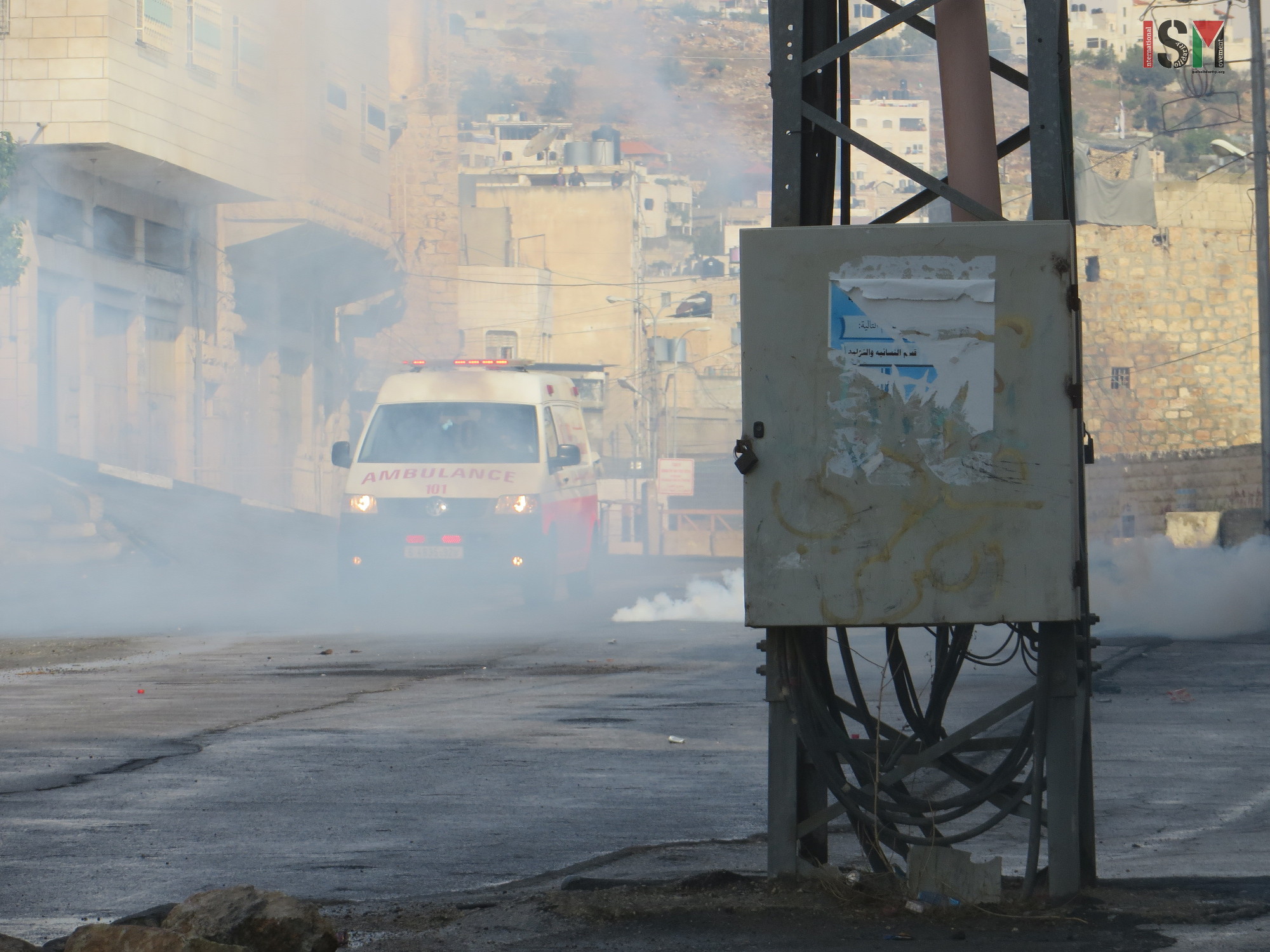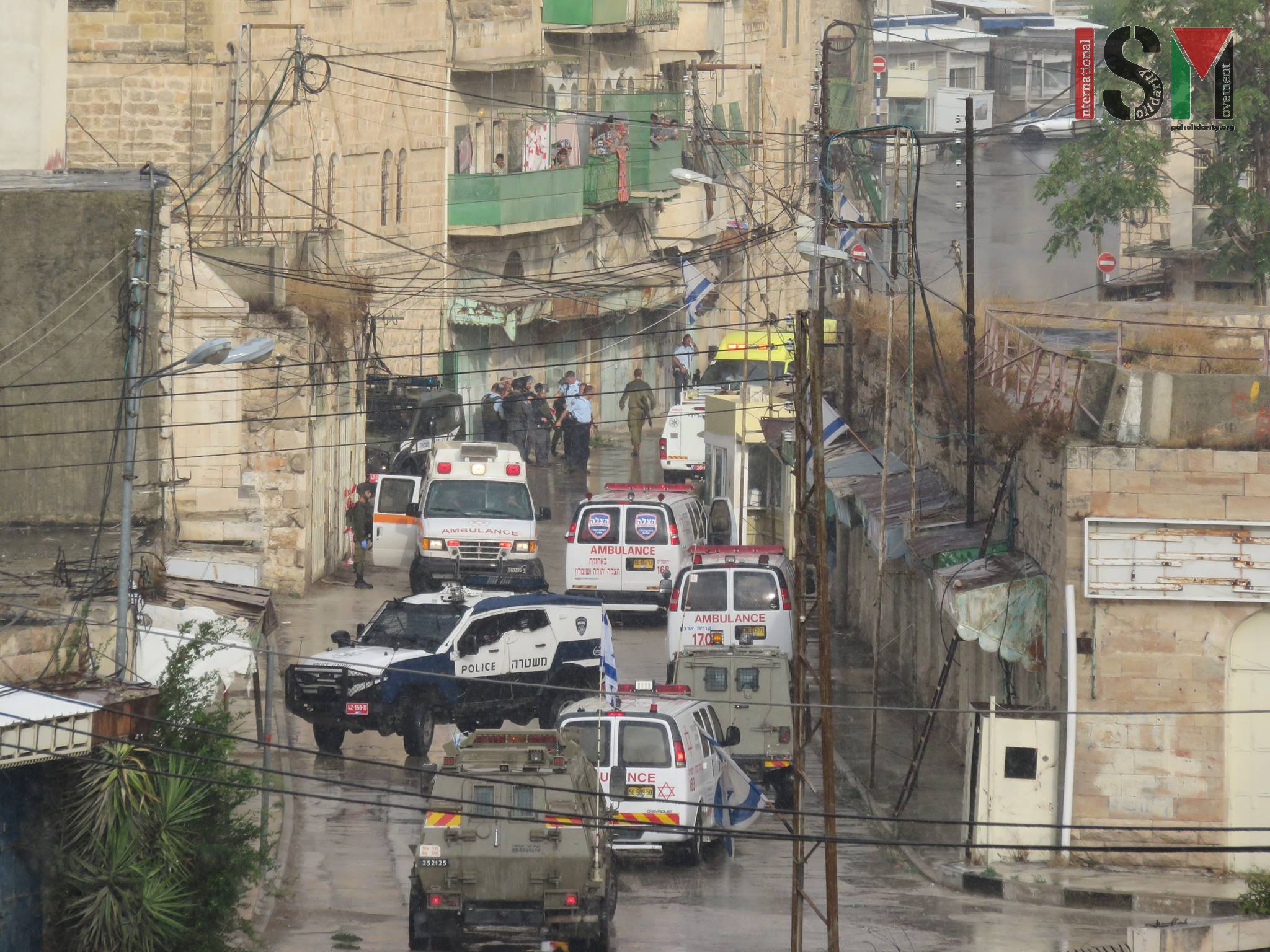-
School days become increasingly perilous as violence rages in Hebron
26th October 2015 | International Solidarity Movement, al-Khalil team | Hebron, occupied Palestine The morning of October 26th, four high-risk locations near schools in Hebron were monitored by international human rights workers, and all four saw incidents of violence to Palestinians and internationals at the hands of Israeli forces and illegal settlers. At the Qurtuba school location, two […]
-
Yet another Palestinian life claimed in al-Khalil (Hebron)
26th October 2015 | International Solidarity Movement, al-Khalil team | Hebron, occupied Palestine This afternoon, Israeli forces executed a Palestinian young man in occupied al-Khalil (Hebron). According to eye-witnesses at the scene, the man was walking towards a checkpoint in the vicinity of the Ibrahimi mosque. Israeli forces did not ask him to show his […]
-
Another daughter of Palestine killed in cold blood
26th October 2015 | International Solidarity Movement, al-Khalil team | Hebron, occupied Palestine Yesterday afternoon, Dania Arsheid, 17, was gunned down in cold blood and killed by Israeli forces in occupied al-Khalil (Hebron). Dania was still wearing her school-uniform and school-bag, coming from school in the afternoon. Just twenty minutes before the incident, at a checkpoint leading to […]
Action Alert An Nabi Saleh Apartheid Wall Arrests BDS Bethlehem Bil'in Cast Lead Demonstration Denial of Entry Ethnic Cleansing Farmers Gaza Global Actions Hebron House Demolition International law Israeli Army Jerusalem Live Ammunition Nablus Ni'lin Prisoner Ramallah Rubber-coated steel bullets Settlement Settlers Settler violence Tear-Gas Canister Video



